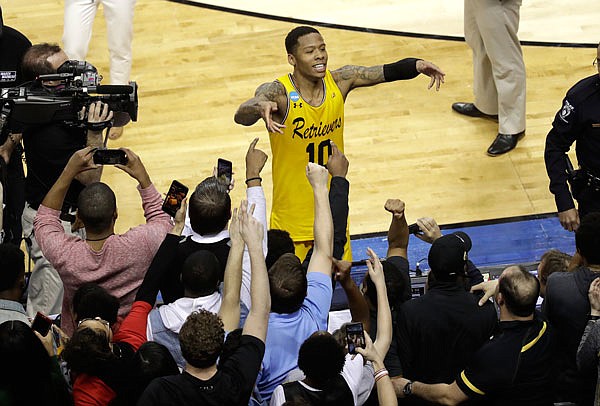Chances are, one of those teams wreaked the same havoc on everyone else in your bracket pool, too. ESPN's Tournament Challenge saw 17 million brackets submitted this year. None of them correctly predicted the full Elite Eight field of Kansas State, Loyola of Chicago, Villanova, Texas Tech, Florida State, Michigan, Duke and Kansas.
At this point, as it always seems to be, the best hope of a bracket on its last legs is to have correctly picked both national championship teams.
But outside of UMBC's historic accomplishment, how many of the upsets this year truly qualify as upsets? High seeding traditionally rewards premier programs in major conferences, and that's fine. But it doesn't fully take into account late slumps or injuries that can severely impact the performance of a team, and it doesn't capture late hot streaks by teams that, by the second weekend, look very under-seeded. That 3- or 6-seed can look like a shiny, safe pick until mid-afternoon Thursday, when it looks like the most obvious dud.
The Retrievers' upset of Virginia was surprising - it was going to happen sooner or later, and the Cavaliers' pace and De'Andre Hunter's injury made them a likely victim - but not as shocking as the margin. Twenty points is a lot to lose by, especially for a team that had two losses by a combined eight points during the regular season.
That game killed the last few perfect brackets in the NCAA's Bracket Challenge Game, and a perfect bracket is so mathematically improbable it borders on impossible.
One thing advanced statistics do well is offer a competitive advantage in these situations. If you had picked your bracket using offensive and defensive efficiency during the 10 games before the start of the tournament, you'd be in the 100th percentile on ESPN with 630 points. Bart Torvik makes that information, among a bunch of other great advanced numbers, available for free on his site, barttorvik.com.
That method correctly picked the first round with nine errors and, most importantly, didn't miss big on anyone except Virginia. It didn't pick Florida State or Nevada to advance out of the first round either, but all things considered it's a much better method than flipping a coin or picking purely based on gut.
There's another option entirely, though: don't fill out a bracket. I didn't, partly because of my travel schedule to Nashville to cover Missouri and partly out of laziness, and I've found the experience more enjoyable. No convoluted math to see if I can still win the pool, no agonizing about the chances of a 12-seed I haven't watched once all season, no bitterness at the kind of upset UMBC or Buffalo or Marshall pulled off. Just enjoyment.
If you can't bring yourself to quit completely, try a shake-up in your bracket-picking method. I promise I won't judge you for filling out more than one.


